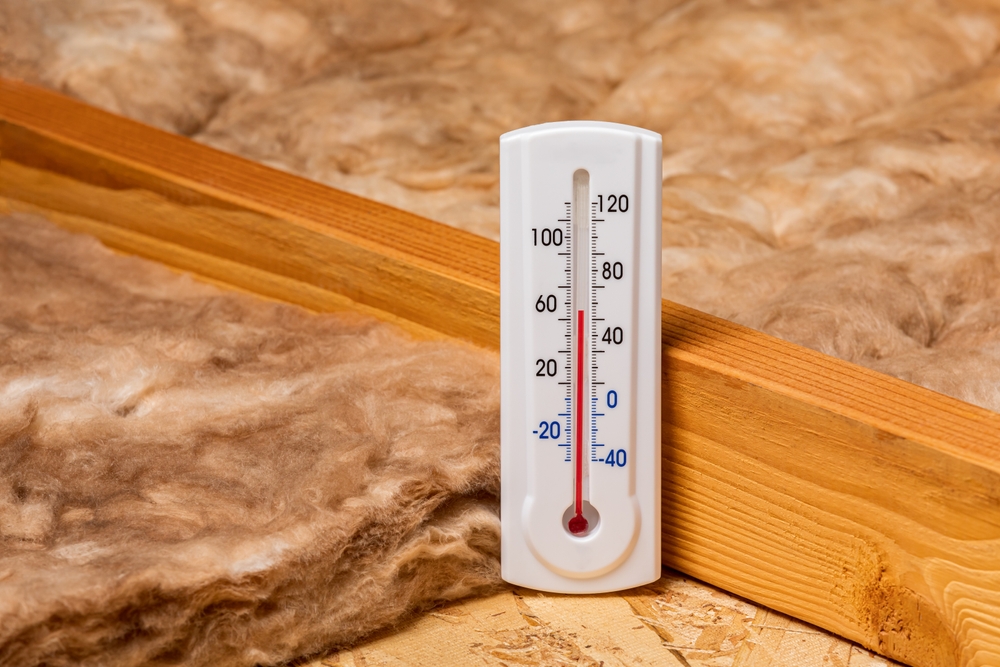When planning an insulation upgrade or building a new home, understanding R-value is essential. It’s one of the most important terms in the world of home insulation, yet many homeowners are unfamiliar with what it really means. Whether you’re trying to lower your energy bills or create a more comfortable living space, knowing how R-value works—and how it varies between insulation types—can help you make the right decision for your property. If you’re working with an insulation company in Baton Rouge, this knowledge will also help you feel confident when reviewing your options.
What Is R-Value?
R-value is a measure of thermal resistance, which refers to how well a material slows the transfer of heat. The higher the R-value, the better that material is at insulating. In practical terms, this means that insulation with a higher R-value will do a better job of keeping heat out during the summer and in during the winter. This is especially important in a climate like Baton Rouge, where hot and humid summers can push your cooling system to the limit. Insulation with a high R-value helps reduce the strain on your HVAC system and improves overall energy efficiency.
How Different Materials Compare
Different materials offer different R-values. Spray foam insulation, for example, is known for having one of the highest R-values per inch of any residential insulation type. Closed-cell spray foam offers an R-value of about 6 to 7 per inch, making it ideal for tight spaces and moisture-prone areas like basements or crawl spaces. Open-cell spray foam, while less dense, still provides a strong barrier with an R-value around 3.5 to 4 per inch, and it excels at soundproofing and filling irregular spaces.
In contrast, more traditional materials like fiberglass batt insulation generally offer R-values in the range of 2.9 to 3.8 per inch, depending on the quality and installation. Blown-in cellulose insulation, made from recycled paper, has an R-value of approximately 3.2 to 3.8 per inch. While these materials are often more affordable, they may require more thickness to achieve the same thermal performance as spray foam.
Why Installation Quality Matters
R-value alone doesn’t tell the whole story. The effectiveness of insulation depends not only on the material’s rating but also on how and where it’s installed. Poor installation can significantly reduce the actual performance of your insulation, regardless of the listed R-value. That’s why partnering with a professional insulation contractor is so important. A trained expert can assess your home’s layout, identify trouble spots like unsealed gaps or compressed areas, and recommend the best solution for each part of the home.
Climate Considerations for Baton Rouge Homes
If you’re working with a reputable insulation company in Baton Rouge, they’ll also take into account your local climate when recommending insulation types and R-values. In warmer regions like southern Louisiana, the U.S. Department of Energy recommends attic insulation with R-values between R-30 and R-60, depending on your home’s age and current insulation levels. Exterior walls usually need insulation in the R-13 to R-21 range, while floors and crawl spaces may require R-19 or higher. These numbers can vary slightly depending on your home’s construction and energy goals.
Long-Term Performance and Maintenance
Another factor to keep in mind is how insulation performs over time. Certain materials, such as fiberglass, can sag or settle, leading to a drop in R-value and overall effectiveness. Moisture exposure is another concern—if your insulation absorbs water, its thermal resistance can drop significantly. One of the key advantages of closed-cell spray foam is that it resists moisture and doesn’t shift or degrade like some other types.
While a higher R-value typically means better performance, it’s not always necessary to max out every area of your home. Strategic use of high-R-value materials in problem areas, combined with effective air sealing and ventilation, can deliver excellent results. A professional insulation company in Baton Rouge can help you find that balance, tailoring the approach to your specific needs and budget.
Final Thoughts: R-Value Is Just the Beginning
In the end, understanding R-value helps homeowners make smarter, more cost-effective decisions. It allows you to compare insulation products on more than just price and thickness. When combined with expert installation and a plan suited to Baton Rouge’s climate, the right insulation can significantly improve your home’s comfort, efficiency, and even resale value.
If you’re considering upgrading your insulation, don’t just go by the numbers on the label. Trust the experience of a qualified insulation company in Baton Rouge to guide you toward the best long-term solution for your home.

